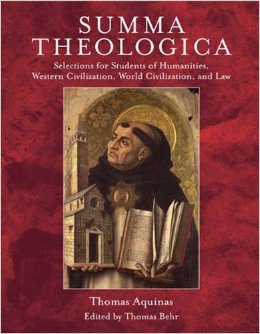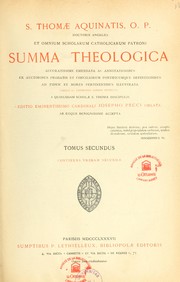


The Kindle edition, on the other hand, costs 99 cents. The printed version costs $150, which is not actually much considering that most college textbooks these days can cost up to twice that much – if not more. The fact is, though, that I probably would have never ventured into reading it cover to cover in the first place were it not for electronic publishing. So it is not surprising that it took me this long to finish it. It is a monumental work, which in printed form extends over five volumes and three thousand densely printed pages. The Catholic Church has over the centuries regularly and consistently reaffirmed the central importance of Thomas's work for understanding its teachings concerning the Christian revelation, and his close textual commentaries on Aristotle represent a cultural resource which is now receiving increased recognition.Ī few weeks ago, after nearly three and a half years of on and off reading, I finally finished St. The result was a new modus vivendi between faith and philosophy which survived until the rise of the new physics.

In two stints as a regent master Thomas defended the mendicant orders and, of greater historical importance, countered both the Averroistic interpretations of Aristotle and the Franciscan tendency to reject Greek philosophy. Thomas completed his studies at the University of Paris, which had been formed out of the monastic schools on the Left Bank and the cathedral school at Notre Dame. When he joined the Dominican Order he went north to study with Albertus Magnus, author of a paraphrase of the Aristotelian corpus. It was at Naples too that Thomas had his first extended contact with the new learning. Thomas, after early studies at Montecassino, moved on to the University of Naples, where he met members of the new Dominican Order.

This crisis flared up just as universities were being founded. He is honored as a saint and "Doctor of the Church" in the Roman Catholic tradition.Īquinas lived at a critical juncture of western culture when the arrival of the Aristotelian corpus in Latin translation reopened the question of the relation between faith and reason, calling into question the modus vivendi that had obtained for centuries. Thomas Aquinas (sometimes styled Thomas of Aquin or Aquino), was a Dominican friar and priest notable as a scholastic theologian and philosopher.


 0 kommentar(er)
0 kommentar(er)
